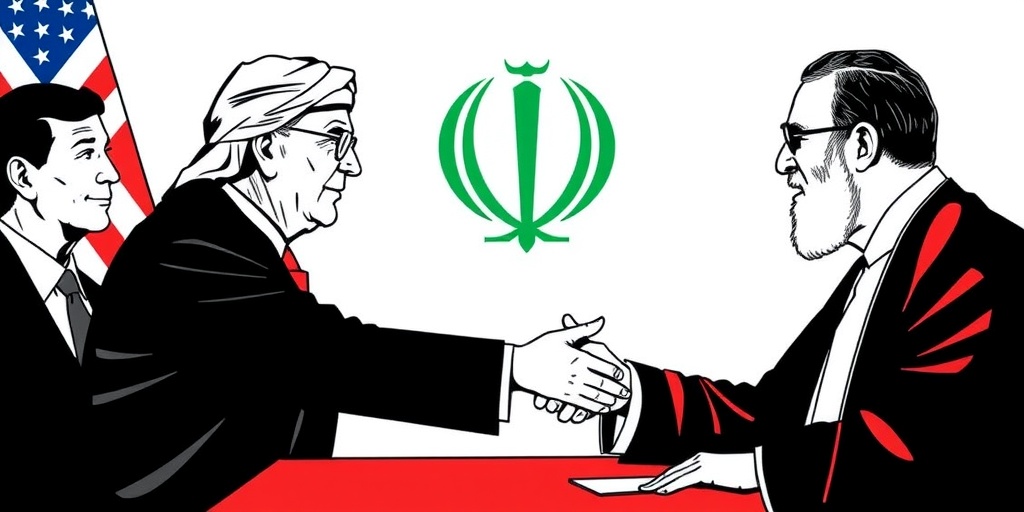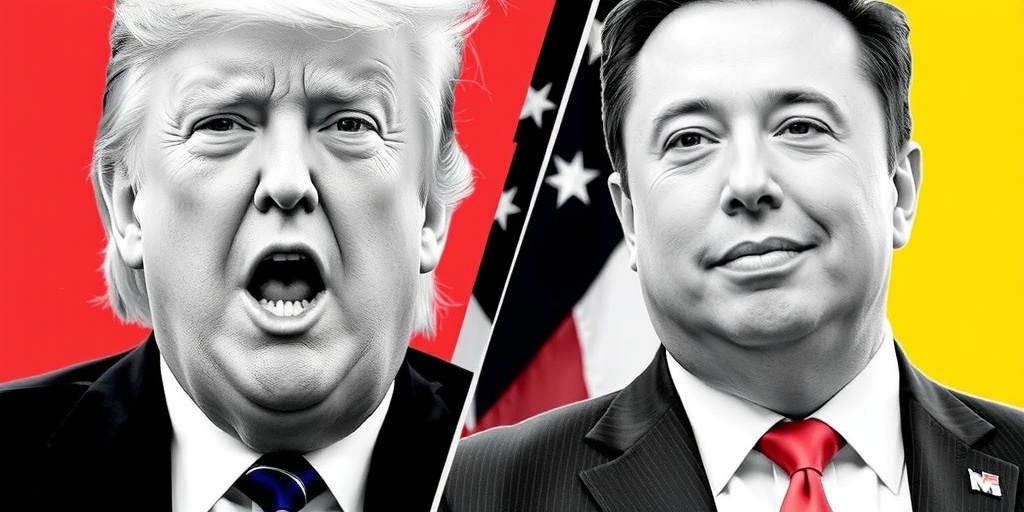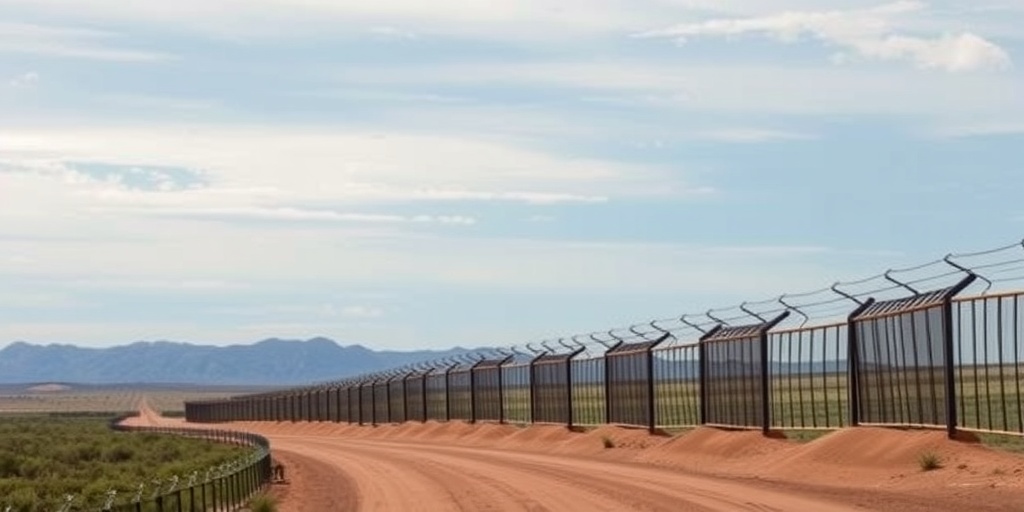Now Reading: Key Insights on U.S.-Iran Nuclear Negotiations
-
01
Key Insights on U.S.-Iran Nuclear Negotiations
Key Insights on U.S.-Iran Nuclear Negotiations

Potential Iranian-U.S. Talks: A Fork in the Road for Diplomacy and Conflict
In a significant diplomatic effort, preliminary talks are set to take place this Saturday between American and Iranian officials in Oman, with the potential for monumental implications regarding Iran’s nuclear program. Expectations for these discussions remain modest, with analysts suggesting that even a brief handshake could be enough to keep the dialogue going and pave the way for the first formal face-to-face negotiations between the two nations since the Trump administration’s withdrawal from the 2015 nuclear accord seven years ago.
These meetings will serve as an opportunity for both parties to gauge the possibility of entering comprehensive negotiations aimed at limiting Iran’s nuclear capabilities. A long-standing mistrust characterizes the backdrop of this engagement, stemming from the Trump administration’s abandonment of the Joint Comprehensive Plan of Action (JCPOA) — a deal Iran negotiated with the U.S. and other world powers. This pivotal agreement was designed to curtail Iran’s nuclear program in exchange for the lifting of severe economic sanctions. Under Trump’s watch, these sanctions were significantly intensified, further straining relations.
Mr. Trump now expresses a desire to negotiate a new deal, motivated not only by a desire to demonstrate his diplomatic skills but also by a pressing need to mitigate growing tensions between Iran and Israel. The Iranian Foreign Minister, Abbas Araghchi, has stated that while skepticism persists in Tehran, officials are “ready to engage in earnest and with a view to seal a deal,” as outlined in a recent op-ed for The Washington Post.
The primary objectives of the upcoming meeting are relatively straightforward, focusing on establishing a framework for negotiations and a timeline moving forward. A critical question remains regarding whether direct discussions will take place or if messages will be conveyed through Omani intermediaries. The Iranian delegation aims to communicate its openness to negotiations concerning the reduction of uranium enrichment and the acceptance of external monitoring. However, they firmly reject discussions on the dismantling of the nuclear program — a demand reiterated by Trump administration representatives.
Many analysts speculate that an initial handshake or a brief meeting might serve as a symbolic gesture, allowing both sides to claim a form of progress without committing to substantive negotiations. Trump himself has remarked that an instinctual assessment will guide his judgment of the talks’ success. He referenced the importance of being attuned to the dynamic between both parties during the talks, suggesting that he would know promptly if discussions were faltering.
At stake in these negotiations is the waning efficacy of the original nuclear deal, which has faced increasing fragility since the U.S. withdrawal in 2018. European nations have endeavored to keep the agreement alive, but its most stringent restrictions are set to expire imminently. The original JCPOA was the result of painstaking diplomatic efforts that took years to negotiate, aimed at preventing Iran from developing nuclear weapons by placing limits on its nuclear activities in exchange for alleviating economic sanctions.
The implications of Iran acquiring nuclear weapons are paramount, as Riyadh, Tel Aviv, and other regional powers view such a reality as a potential existential threat. Reports from experts suggest that Iran’s ongoing enrichment of uranium — a critical component for nuclear bombs — raises alarms globally, as it could lead to further nuclear proliferation, including the alarming possibility of Iran sharing its nuclear capabilities with non-state actors or terrorist groups.
Despite Iran’s assertion that its nuclear activities are solely for civilian purposes, the reality is that it continues to enrich uranium beyond levels necessary for peaceful uses. Following Trump’s withdrawal from the JCPOA, Iran ramped up its uranium enrichment efforts, significantly increasing its capabilities.
In parallel to diplomatic talks, concerns are mounting from Israel, which sees Iran’s expanding nuclear program as a direct threat. Israeli Prime Minister Benjamin Netanyahu recently underscored his government’s stance that any deal regarding Iran must involve the complete destruction of nuclear sites under U.S. supervision, warning that military options could become the necessary recourse if negotiations fail to yield satisfactory results.
As the Trump administration readies its envoys for discussions, it is noteworthy that there is vast expertise differing between American and Iranian delegations. While Mr. Araghchi brings a wealth of experience from previous negotiations, the designated American envoy, Steve Witkoff, is believed to have limited experience regarding the technical nuances of Iran’s nuclear program.
As circumstances unfold, it is likely that Iran will endeavor to prolong diplomatic discussions to stave off potential military actions from Israel and to push past critical deadlines related to the United Nations’ authority to enforce sanctions. By engaging in negotiations that suggest substantive engagement, Iran could maneuver itself strategically, making it challenging for the U.S. and its allies to take decisive actions.
Although many view a new deal as a possibility, it is anticipated that any agreements reached might not substantially diverge from the initial terms outlined in the JCPOA. This prospect raises concerns among Israeli leaders and could frustrate the Trump administration’s desire for a clear, decisive outcome that surpasses prior agreements.
With heightened military activity in the region, both sides face a delicate balance of diplomacy and preparation for potential conflict. The Trump administration has bolstered military resources in proximity to Iran, while still expressing a strong preference for peace over warfare.
As the diplomatic scene shifts, it remains clear that the stakes in these discussions are high—not just for Iran and the U.S., but for regional stability as a whole. The next steps taken by both nations will be pivotal in determining whether they can transcend their entrenched positions and avoid the pitfalls of conflict.
Stay Informed With the Latest & Most Important News
Previous Post
Next Post
-
 01New technology breakthrough has everyone talking right now
01New technology breakthrough has everyone talking right now -
 02Unbelievable life hack everyone needs to try today
02Unbelievable life hack everyone needs to try today -
 03Fascinating discovery found buried deep beneath the ocean
03Fascinating discovery found buried deep beneath the ocean -
 04Man invents genius device that solves everyday problems
04Man invents genius device that solves everyday problems -
 05Shocking discovery that changes what we know forever
05Shocking discovery that changes what we know forever -
 06Internet goes wild over celebrity’s unexpected fashion choice
06Internet goes wild over celebrity’s unexpected fashion choice -
 07Rare animal sighting stuns scientists and wildlife lovers
07Rare animal sighting stuns scientists and wildlife lovers





















